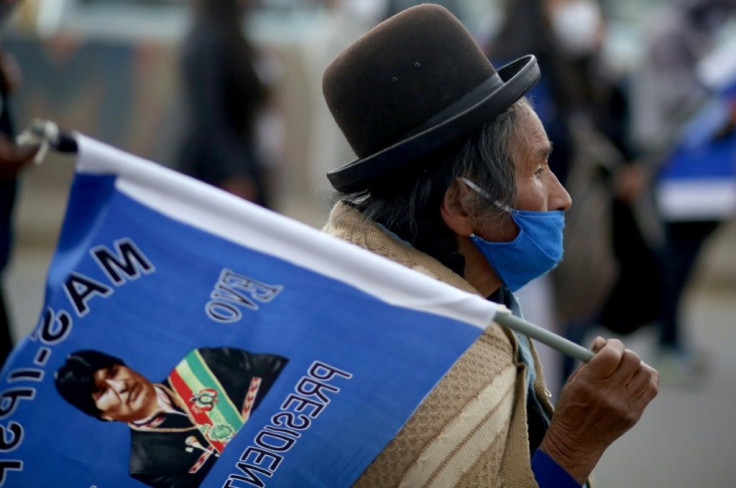Morales Backers Persecuted In Bolivia: HRW

Bolivia's interim leadership is using the justice system to persecute supporters of ex-president Evo Morales, Human Rights Watch reported Friday.
The human rights group said interim President Jeanine Anez, a conservative, used the system against more than 100 allies of leftist Morales, now in exile.
Her government has violated due process against Morales allies and supporters; limited free expression and overused preventive detention, HRW charged, adding that some have been accused of "terrorism" simply for speaking to Morales on the phone.
The Anez government -- which is in office after the political crisis that followed the annulled October 20 election -- categorically rejected the allegations of any political persecution.
Morales, 60, is a hugely influential figure in Bolivia even though he currently lives in exile in Argentina after 14 years in power. He fled following three weeks of protests against his controversial reelection to an unconstitutional fourth term last October.
Morales had appealed to the constitutional court in La Paz to overturn the electoral commission's decision and permit him to run as a senate candidate for the central region of Cochabamba, where he emerged as a political leader decades ago. But a judge ruled against his eligibility last week.
Neither Morales nor his party, the Movement for Socialism (MAS), issued a statement in the immediate aftermath of the announcement.
It is not the first criminal proceeding brought by the government against Morales -- Bolivia's first ever indigenous president who was in power from 2006-19.
Authorities have also accused Morales of two intimate relationships with minors, including one in which he supposedly fathered a child with a girl who was 15 when she became pregnant.
Bolivia heads to the polls on October 18, a year after the elections that triggered mass protests over allegations of being rigged.
MAS has dismissed those accusations as a pre-election tactic.
Luis Arce, the MAS candidate for president, has led polls since he was nominated in January -- but in the latest he was neck-and-neck with centrist former president Carlos Mesa.
© Copyright AFP {{Year}}. All rights reserved.





















